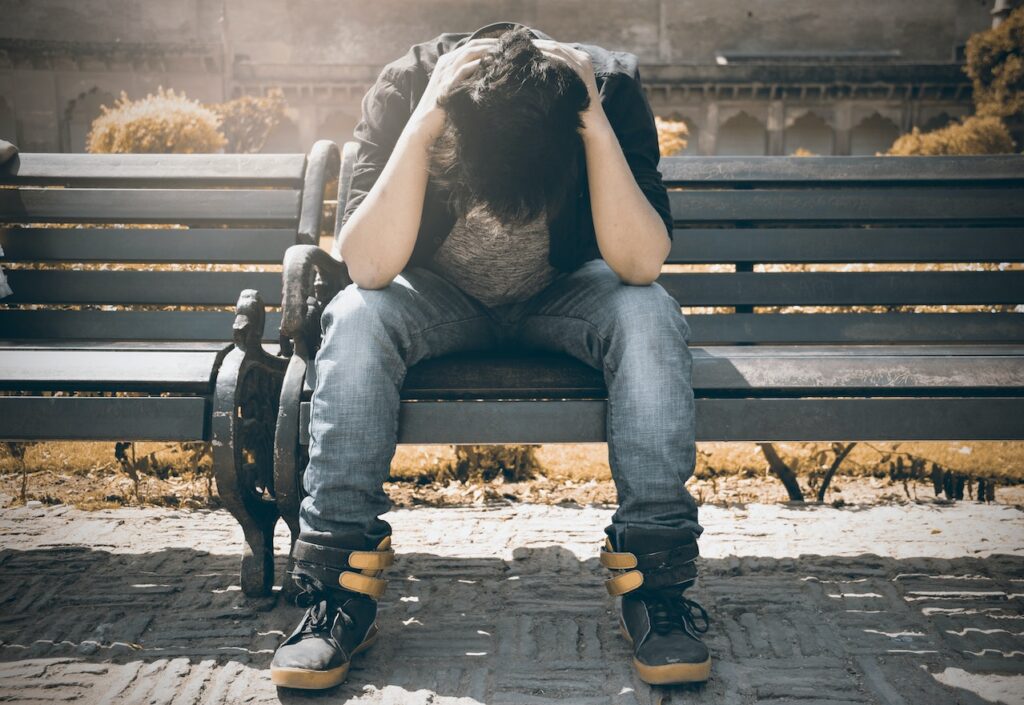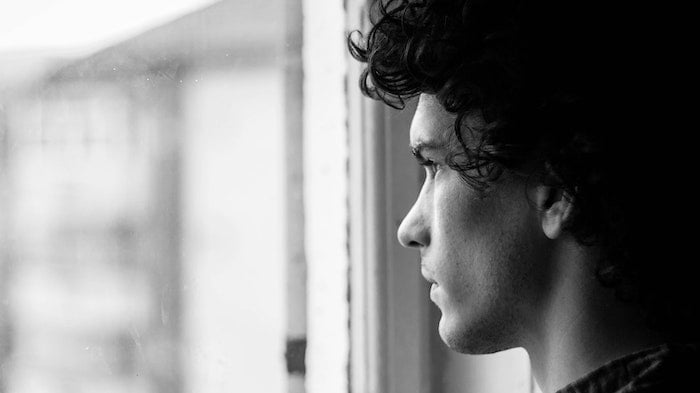According to the latest data, in England, 1 in 4 people suffer from mental health issues.
1 in 6 people are likely to experience common mental health issues, such as anxiety and/or depression. (1)
For more information about mental health statistics in the UK, please read more here.
In recent years, mental health issues have become increasingly common.
This has led many people to ask what can be done to combat poor mental health.
Although in some cases, it is important to seek professional help, such as talking to a psychiatrist/psychologist, there are many things that people can do that will help alleviate mental health issues.
Examples of this might include eating healthy, exercising, or, as this article will discuss, spending time alone.
Alone time, on the surface, might sound counterintuitive. However, there is a range of benefits to spending time alone.
This article will discuss these benefits, asking questions such as how important alone time for mental health is.
What are the Causes of Poor Mental Health?

Before answering this question, it is worth first talking about some of the most common causes of mental health issues.
This is very broad, however, and will vary from person to person.
It is always advised that people should speak with a medical professional. (2)
Some of the most common factors that contribute to poor mental health include:
- Childhood abuse or trauma
- Adulthood trauma, such as being in an accident, experiencing military combat, or being a victim of crime.
- Poor socio-economic conditions, such as poverty, unemployment, or homelessness
- Social stigma or discrimination
- Social isolation
- Long-term stress
- Bereavement (the loss of a loved one)
- Drug and/or alcohol misuse
- A poor diet and lack of exercise
- Being bullied
- Domestic violence
- Physical causes, such as damage to the brain
- Genetics (having a family history of mental health issues)
Why is Spending Time Alone Important?

Although people are intrinsically social creatures, research has found that alone time can have many positive effects on a person’s mental health.
This is not to say that complete isolation is healthy, however. Like most things in life, there needs to be a balance.
Socialising is equally important in countering mental health issues.
However, spending time alone can help people alleviate the pressures of the social world and develop introspection.
It provides an opportunity to understand your thoughts, feelings, and experiences.
Some of the main benefits of being alone include:
- Self-reflection and personal exploration
- Becoming productive
- Improving physical health
- Exploring your creative side
- Social energy
Self-reflection is important for developing a healthy lifestyle. Many people get caught up in the busyness of life – whether work, family, or friends.
In most cases, this leaves little time for ‘turning inward‘; that is, reflecting on who you are as a person or what your passions or desires are, for example.
Self-reflection also provides an opportunity for people to process thoughts and feelings.
Alone time also provides people with an opportunity to catch up with things that have been put on the back burner.
This might be house jobs or a project that you have wanted to complete but have been too busy to do so.
Alone time can also be a time to get healthy. Focusing on eating healthy and exercising can be great things to do when alone.
People that advocate for the importance of alone time will often highlight the creative benefits.
Alone time can be a great opportunity to explore your creative side, such as painting, writing, or playing an instrument.
Finally, one of the best things about being alone is recouping and recharging.
Resting is important for both physical and psychological health. (3)
What are the Specific Mental Health Benefits of Spending Time Alone?

The question, then, is how do such benefits of alone time directly correlate with good mental health?
Self-reflection, for example, is a key part of processing trauma or stress that has led to poor mental health.
Many therapies, such as talk therapy or Cognitive Behavioural Therapy (CBT), use self-reflection as part of treatment.
Self-reflection requires people to confront their trauma, which helps cognitive processing of the trauma and helps with emotional management.
Self-reflection also leads to a sense of knowing who you are. This, in turn, leads to self-assurance and a feeling comfortable in your skin.
This should lead people to become more confident within themselves, which should have a positive impact on their work and/or social lives.
With regards to mental health, this helps alleviate feelings of anxiety and/or depression.
Research has found that being productive or creative has a direct effect on mental health.
Both engender a sense of achievement and doing things that are of benefit.
In addition, both are cognitively stimulating, which helps with anxiety.
Exercising and eating healthy also help improve mental health.
The former releases endorphins which directly help improve feelings of happiness and combat depression.
In general, all these alone time activities are good for people’s well-being. In turn, this helps with a person’s cognition, leading to better mental health. (4)
This is often the premise of holistic therapy – well-being leads to better mental health.
What are the Signs that I Need Some Alone Time?

It is important to recognise when alone time is needed. Unfortunately, these signs are not always evident when caught up in day-to-day life.
Some of the most common signs include:
- Feeling overwhelmed
- Feeling exhausted
- Experiencing high levels of stress
- Becoming easily irritated
- Experiencing unstable emotions
- Being unable to concentrate
- Experiencing feelings of anxiety
If you are experiencing any of these signs, spending time alone will help.
How to Spend Time Alone

For many people, spending time alone can feel daunting. In addition, many people are not sure how to spend time alone.
According to several studies, some parameters are worth implementing to ensure that alone time is beneficial.
Firstly, spending time alone should be voluntary, and people should feel like they can socialise as soon as they would like to.
Other useful tips include:
- Pick a specific time and date. Knowing when you will be able to have some alone time is beneficial on its own. This also allows people to let their friends and family know that they have plans. People around you might have different social needs/expectations and it is good to communicate that you need some alone time.
- Eliminate distractions. Alone time is most beneficial when people practice mindfulness. This means living in the moment and shutting off anything that might prevent it. For example, people should switch off social media, news, or any other things that might distract them.
- Have something to do. This could be anything from gardening, reading, painting, or exercising. One of the most popular alone-time activities is going for a walk. This has been found to have many mental health benefits, such as reducing stress and anxiety.
- Create a comfortable space. When spending time alone, it is important to be in an environment that is conducive to positive mental health. Therefore, people should spend their alone time in a space where they feel most comfortable and can relax.
- Have the right mindset. Some people might not like the idea of being alone – this could be due to a fear of loneliness or boredom. It is important, therefore, that people have in mind the benefits of alone time. It is an opportunity to recuperate not isolate.
What are the Differences Between Being Alone and Loneliness?

Being alone and being alone are two very different things.
The former, as mentioned, has many benefits – both physically and mentally.
It provides a chance to rest, relax, and reflect, and an opportunity to slow down and enjoy some activities.
Loneliness, on the other hand, is often a feeling of social isolation. In many cases, people that feel lonely, feel disconnected from family and friends.
Unlike spending time alone, loneliness can have many negative physical and mental health issues.
Examples of this include increased stress, anxiety, depression, and elevated blood pressure.
It can also lead to cognitive decline, as socialising helps stimulate certain parts of the brain. (5)
How Much Time Should I Spend Alone?

Unfortunately, there is no specific answer to this question. The time people should spend alone will depend upon several factors.
An example of this might be if the person is an introvert or extrovert.
Introverts reenergize from being alone and can find social situations very exhausting.
Conversely, extroverts are energized by social situations and might find it difficult to be alone for long periods.
Therefore, an introvert might need more alone time than an extrovert.
It is, again, about balance and recognising your own needs.
Too much alone time might lead to feelings of loneliness and isolation.
At this point, being alone is no longer beneficial to a person’s mental health.
However, not enough alone time can be just as detrimental. This might lead to burnout, increased anxiety, and fatigue.
What are Some of the Challenges of Spending Time Alone?

As mentioned, for some people, spending time alone can feel daunting. This is understandable, as some things about being alone can be challenging.
For example, this might include:
- Not being used to being alone
- Combatting negative thoughts and/or feelings
- Social stigma and social pressures
For some people, being alone is just not a regular occurrence. As a result, they might feel unsure or uneasy about spending time alone.
In many cases, this is just habitual and a byproduct of mostly being around other people.
The downside to this is that suddenly being alone can make people feel lonely and disconnected from their social world.
One of the most common challenges people face is being alone with their thoughts and feelings.
When people do not have any alone time, they do not have a chance to process things in their life – this might be due to busyness or active choice to prevent dealing with trauma.
Either way, when people are alone, they might have to contend with painful thoughts and feelings.
However, in the long run, this will be beneficial to their mental health.
Finally, there can sometimes be a social stigma surrounding being alone.
Particularly in a modern world where people a bombarded by social media posts of others socialising.
People with this perspective might find being alone very difficult.
References
(1) https://commonslibrary.parliament.uk/research-briefings/sn06988/
(2) Schulenberg, John E., and Nicole R. Zarrett. “Mental Health During Emerging Adulthood: Continuity and Discontinuity in Courses, Causes, and Functions.” (2006).
(3) Dixon, Lisa Prescott. “The Impact of Spending Time Alone on Emerging Adults’ Mental Well-Being.” Family Perspectives 1, no. 2 (2020): 4.
(4) Long, Christopher R., and James R. Averill. “Solitude: An exploration of benefits of being alone.” Journal for the Theory of Social Behaviour 33, no. 1 (2003): 21-44.
(5) Okechukwu, Chidiebere Emmanuel. “The impact of loneliness on physical and mental health among older adults in the era of coronavirus disease 2019 pandemic.” Apollo Medicine 18, no. 1 (2021): 29.





